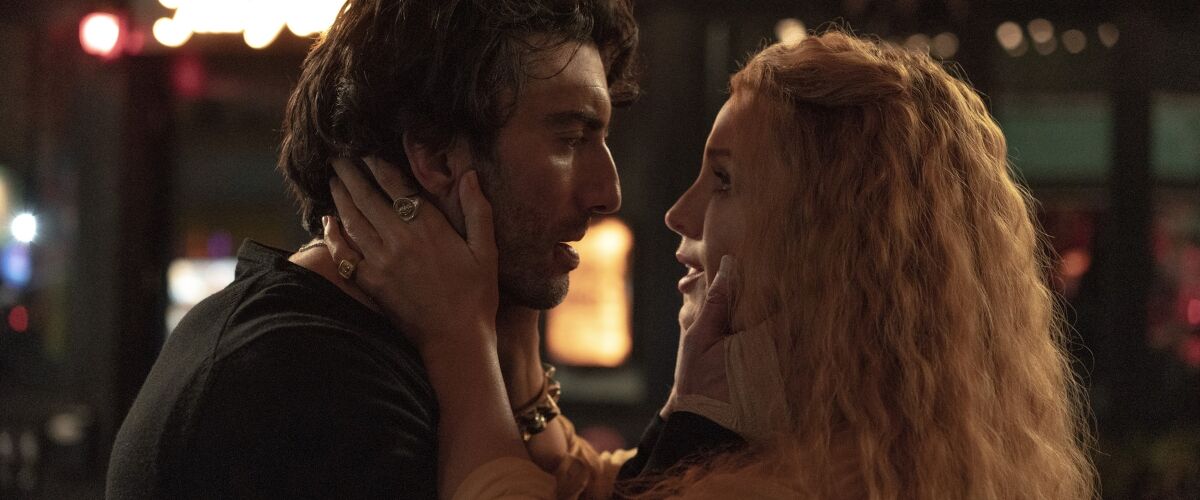** Warning: Mentions domestic abuse.
Navigating the delicate balance between engaging cinema and the respectful portrayal of sensitive topics is no small feat. When a film tackles such subjects, it often faces the challenge of preserving the narrative’s gravity without succumbing to the sombre aesthetics that typically accompany grave themes. Yet, the allure of cinema should not compel a departure from the depth and nuance these issues demand.
Translating such a sensitive issue such as domestic violence to the screen proves to be a formidable task for It Ends With Us, a Blake Lively-led (and produced) adaptation of Colleen Hoover’s best-selling novel. The novel, which rose to prominence through the enthusiastic endorsements of TikTok’s voracious reading community, also known as BookTok, weaves a tale fraught with domestic violence and intergenerational trauma – a page-to-screen narrative that demands a deft touch.

The result is a two-hour-long movie that, despite its serious themes, feels superficial, almost as if it’s unwilling to fully engage with the gravity of its own narrative. This superficiality is mirrored in a controversial decision made by Hoover earlier in 2023: the release of an ill-conceived colouring book based on the novel, which was quickly shelved due to public backlash. Sadly, the film adaptation feels like an extension of this misstep, rendering a story of abuse and resilience with the depth of a colouring page.
This lack of sensitivity is particularly jarring in light of Hoover’s own response to allegations of sexual harassment against her son in 2022. Choosing to defend him in a private Facebook group rather than acknowledge the gravity of the situation, Hoover’s actions seem to mirror the film’s own reluctance to confront the uncomfortable realities of abuse. It’s a troubling disconnect that casts a shadow over the adaptation, raising questions about the film’s sincerity in addressing its central themes in its story.
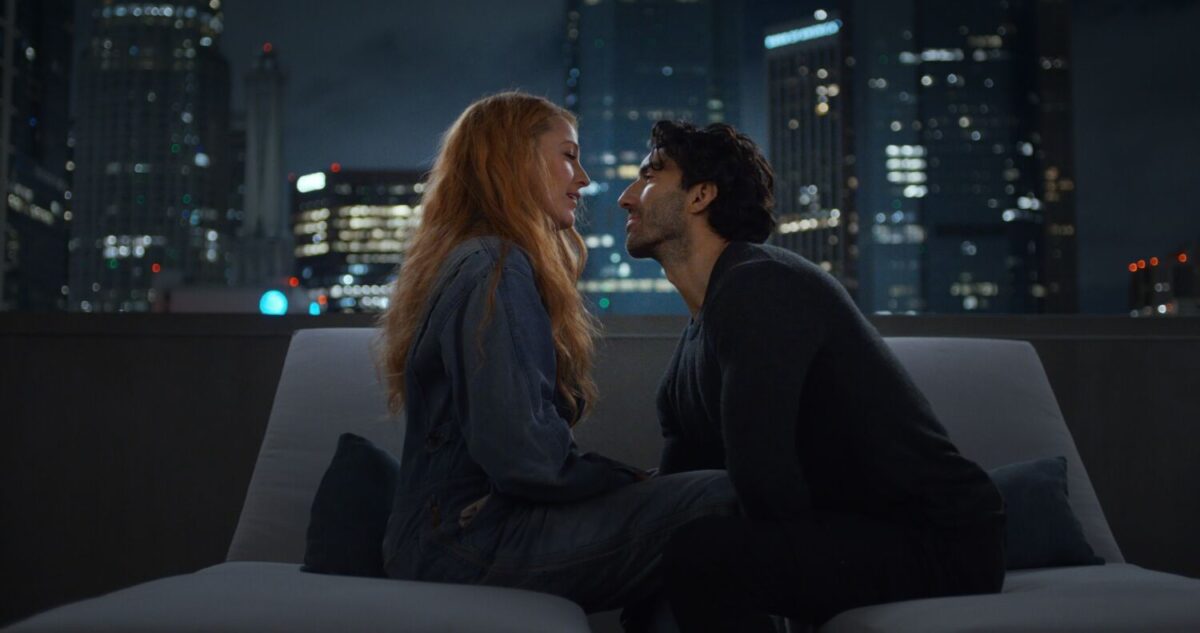
One wonders then, where the story’s resonance truly lies. Certainly not in Christy Hall’s (I Am Not Okay with This) screenplay, which, despite contributions from Lively’s own husband Ryan Reynolds of Deadpool & Wolverine fame, feels stiff and stilted. Lively credits Reynolds with scripting what was meant to be a pivotal rooftop meet-cute opening scene, yet this and other segments come off as contrived and awkward, lacking the authentic touch that might have grounded its more dramatic aspirations. In fact, the behind-the-scenes drama surrounding the film’s production (with cast and crew reportedly vying for control over the script and editing) seems to be the most human element in this otherwise emotionally distant project.
Unfortunately, this lack of a cohesive vision is seemingly evident in the film’s narrative, which revolves around Lily Blossom Bloom (Lively, Gossip Girl, The Age of Adaline), a name so saccharine it borders on parody. We meet Lily as she returns to her hometown for her father’s funeral, only to encounter an impossibly handsome neurosurgeon, director Justin Baldoni’s (Jane the Virgin, Five Feet Apart) Ryle Kincaid. Their flirtation is interrupted, but fate, it seems, has other plans. Ryle conveniently turns out to be the brother of Lily’s best friend and florist employee, Allysa (Jenny Slate, Gifted, Zootopia). And yes, in case the floral motif in her name wasn’t enough, Lily Blossom Bloom also happens to own a flower shop!
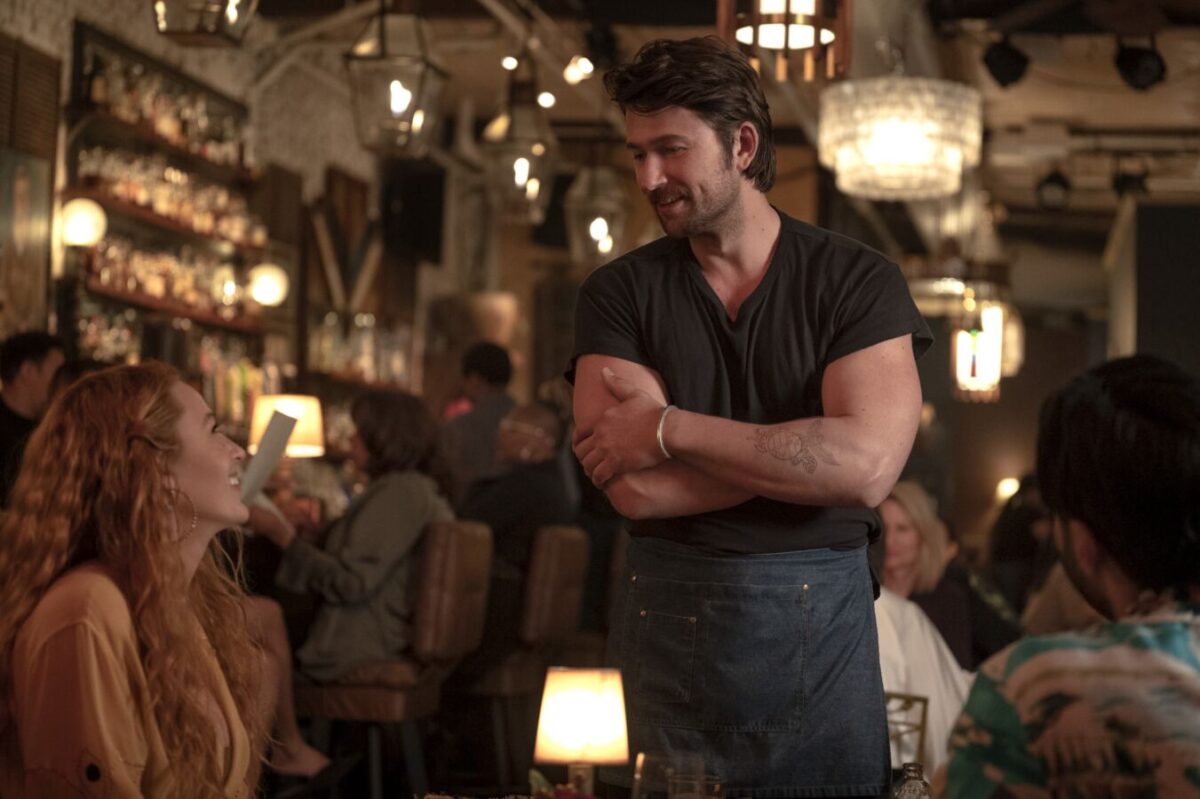
As Lily and Ryle’s romance unfolds, the film interlaces their story with flashbacks of Lily’s youth, portrayed by Isabela Ferrer (Evil, Fire Burning), who bears an uncanny resemblance to Lively. These flashbacks introduce us to Atlas Corrigan, a troubled youth played by Alex Neustaedter (Colony, A.X.L.), whom Lily befriends and supports. The adult Atlas, now a successful restaurateur played by Brandon Sklenar (1923, Midway), reenters Lily’s life, reigniting old flames and stoking the fires of jealousy in Ryle.
Up to this juncture, It Ends With Us masquerades as a somewhat standard romantic melodrama, peppered with scenes of passionate intimacy and romantic confusion. But the narrative takes a darker turn, aligning with the plot of Hoover’s original novel. Lily becomes a victim of domestic violence, a transition in the film that is unsettlingly subtle. The initial incident, presented almost as an innocuous accident, belies the severity of what follows. Subsequent altercations escalate, each more alarming than the last, painting a distressing portrait of a relationship descending into abuse.
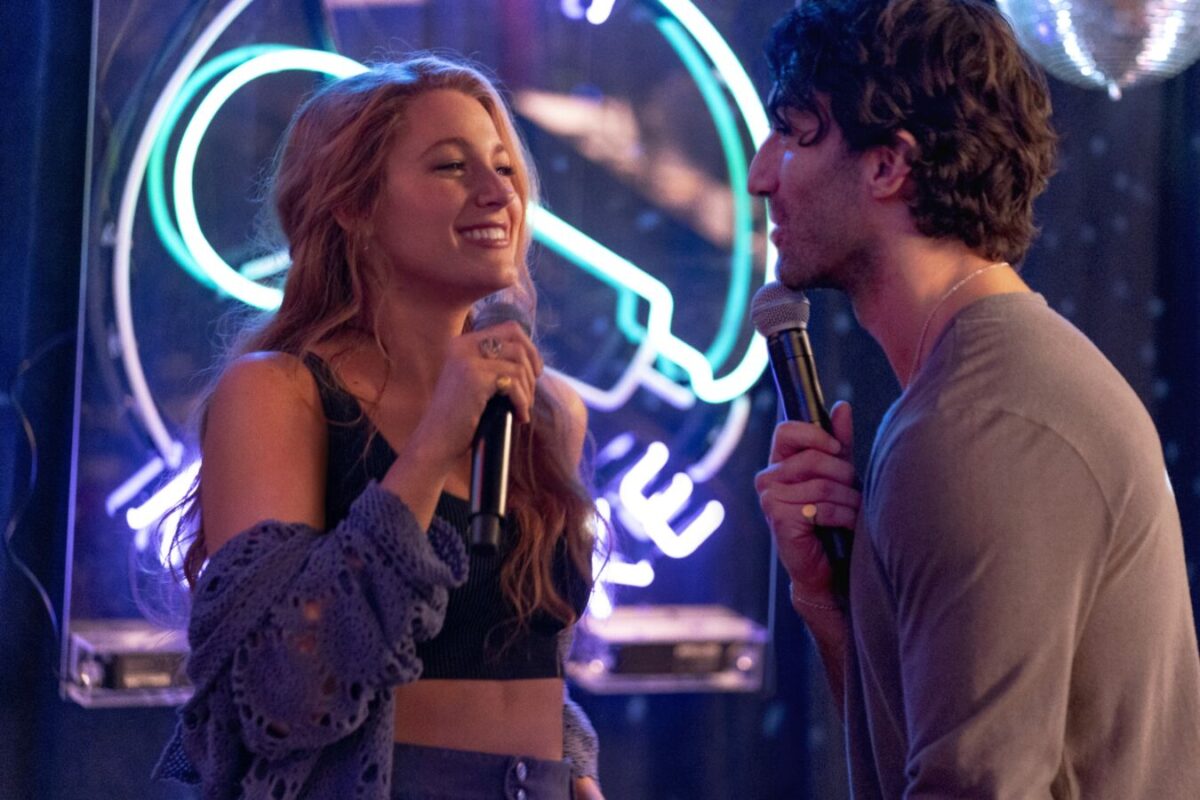
Director Baldoni attempts to convey these moments of abuse through Lily’s disoriented perspective, capturing the confusion and denial often experienced by survivors. Yet, the adaptation stumbles in its execution, neglecting crucial scenes that address the abuse directly. In the book, Lily confronts Ryle immediately after the first incident, setting clear boundaries and acknowledging the abuse. The film, however, softens this encounter, with Lily acquiescing to Ryle’s minimisation of the event as just a “lovely mess”, a shift that significantly alters the narrative’s impact.
Ironically, It Ends With Us shines brightest when it indulges in the familiar tropes of a romantic comedy. Baldoni, drawing from his experience on romcom telenovela Jane the Virgin, skillfully captures the initial spark between Lily and Ryle, allowing their flirtation to unfold through lingering close-ups and palpable chemistry. His attempts to capture the nuances of abuse are commendable, but they are ultimately undermined by Lively’s underwhelming performance.
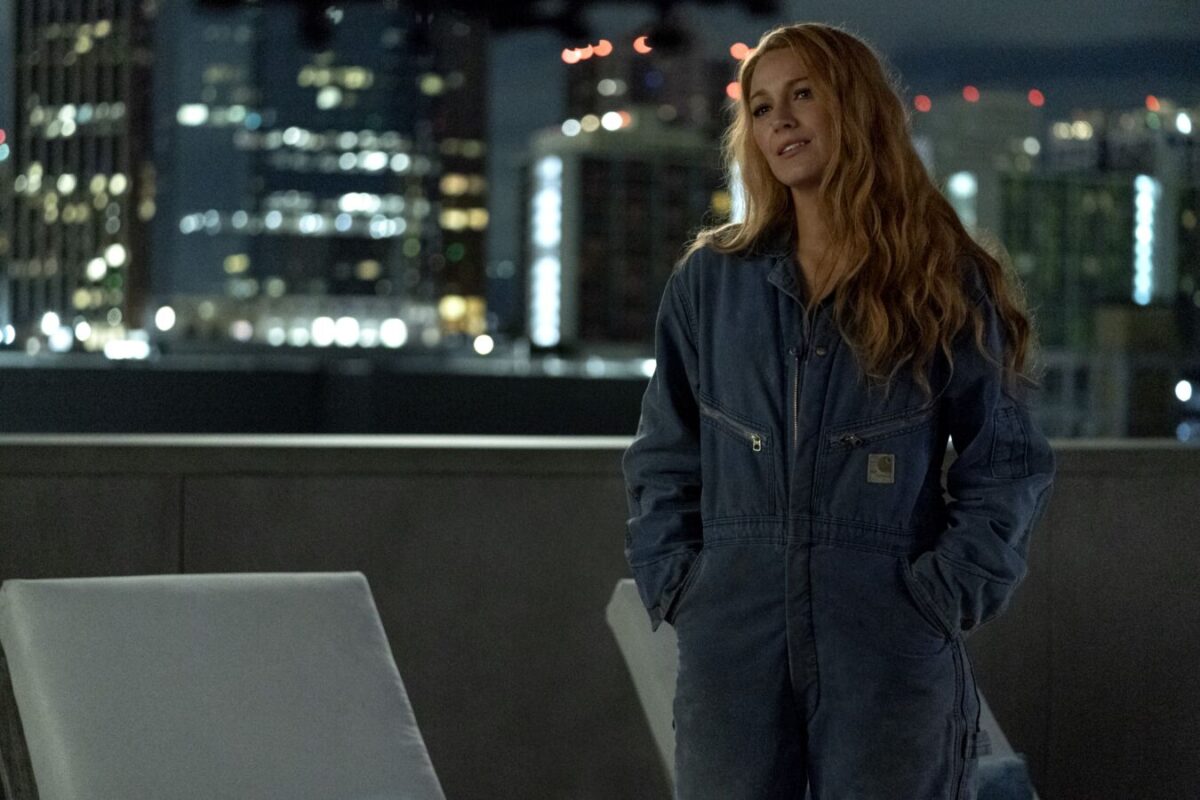
Lively, despite her proven talent in films like The Shallows (2016) and A Simple Favor (2018), struggles to breathe life into the thinly written Lily. Lively’s Lily feels like a blank slate, a passive reflection of the men around her rather than a fully realised individual. Even her poorly chosen wardrobe feels more like a brand placement for clothing company Carhartt than a genuine extension of her character. By the film’s end, Lily remains a muted stranger, overshadowed by a certain man who, for better or worse, commands the screen with his flawed energy that feels unnervingly real.
No, it is not Sklenar’s Atlas. Despite being intended as Lily’s safe haven, Atlas suffers from similar underdevelopment. Although sympathetic, he lacks the charisma necessary to fully captivate the audience, resulting in a lukewarm relationship with Lily at best.
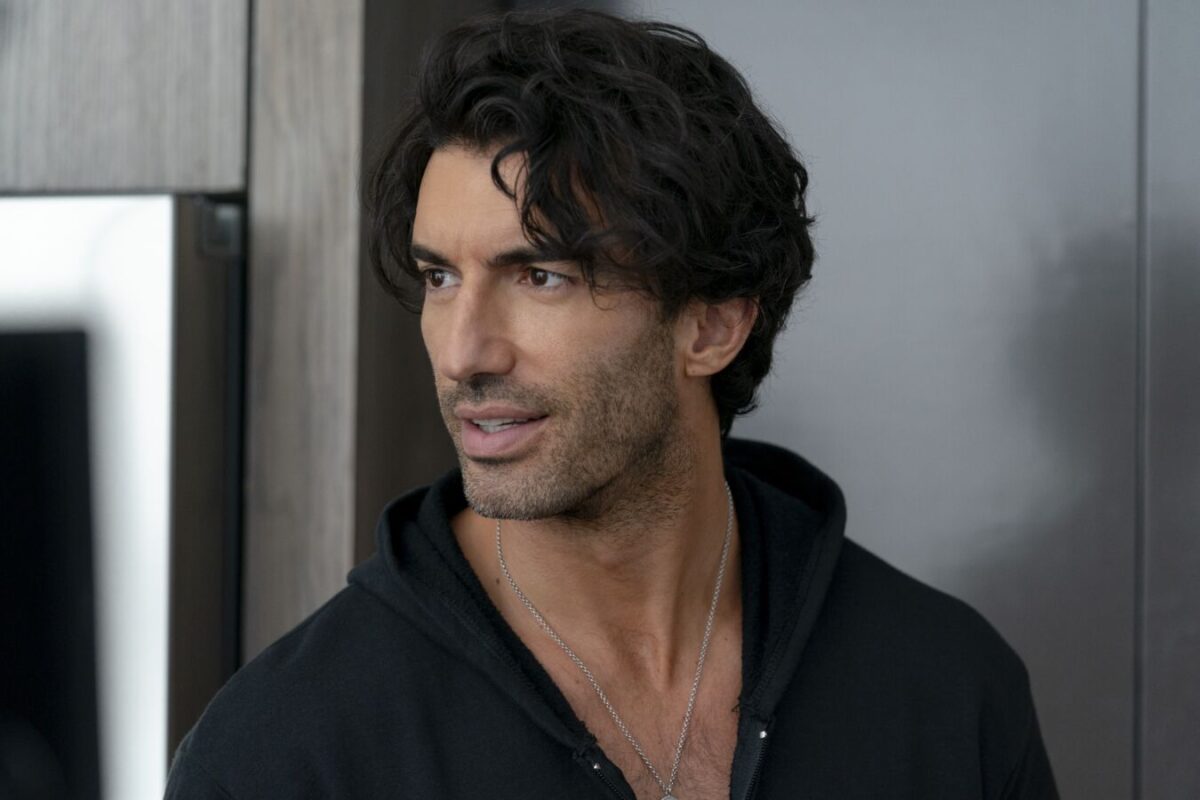
It is Baldoni who inhabits the more complex role of Ryle with greater success, particularly in the film’s earlier stages. He’s undeniably more engaging as the charming love interest than the monstrous abuser, but the film’s attempts to humanise Ryle with a late-revealed traumatic backstory feel misguided and unnecessary. It’s as if we did not just watch Ryle physically and emotionally abuse Lily in the latter half but is there really a need to find reasons to sympathise with him? This misguided attempt at redemption underscores the film’s fundamental flaw: its inability to reconcile its conflicting desires.
It Ends with Us straddles a fine line, attempting to tackle the grave issue of domestic violence while wrapping it in the trappings of a glossy romance. It aims to showcase the complexities of love that blinds us to the glaring warning signs of abuse, but it also indulges in a romanticised narrative about a small-town girl caught between two potential lovers. The film sets ambitious goals but fails to achieve them, resulting in a portrayal that borders on being offensive in its treatment of its central theme.
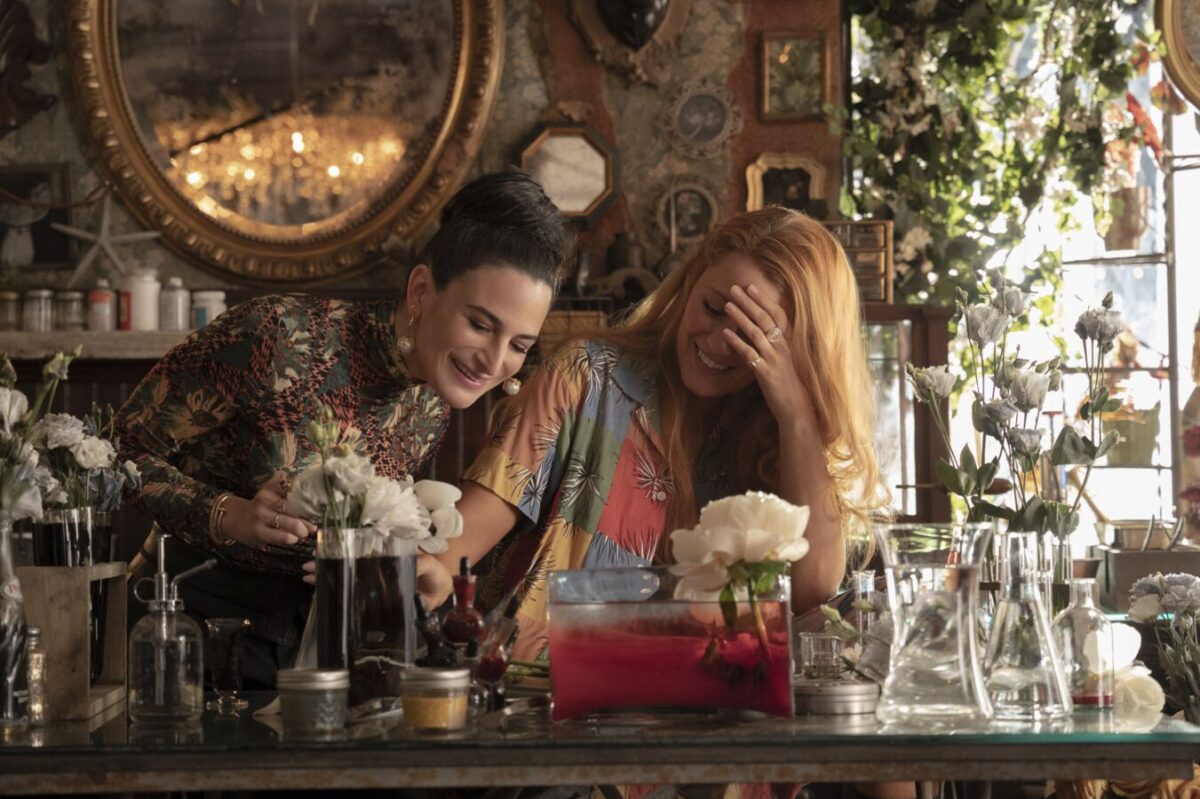
What could have been a poignant exploration of breaking free from the cycles of abuse turns into a squandered opportunity, more focused on capitalising on tone-deaf social media trends (“Grab your friends! Wear your florals!”) than faithfully conveying the story’s essential truths. While the film might attract viewers through its connections to a best-selling novel, a high-profile cast, or surrounding controversies, it ultimately fails to deliver the profound impact that so many had hoped for.
In the end, the film does more than end with us; it disappoints us completely.
GEEK REVIEW SCORE
Summary
In its endeavour to tackle a subject as delicate and severe as domestic abuse, It Ends With Us unfortunately skims the surface, lacking the authenticity and depth necessary to make the impact it ostensibly aims for.
Overall
4/10-
Story - 4/10
4/10
-
Direction - 5/10
5/10
-
Characterisation - 4/10
4/10
-
Geek Satisfaction - 3/10
3/10

